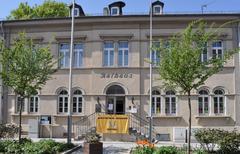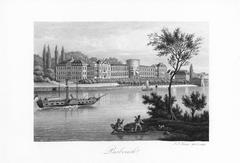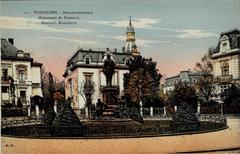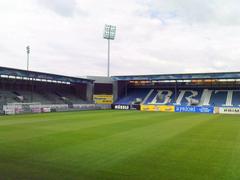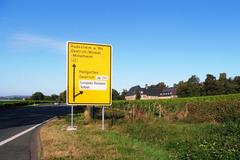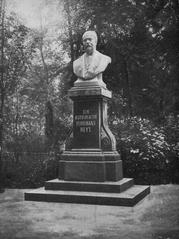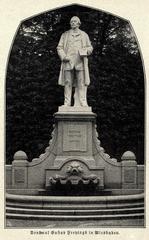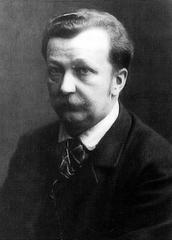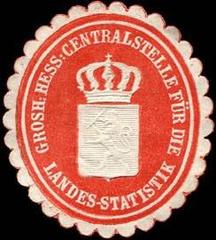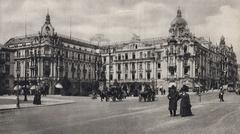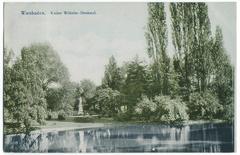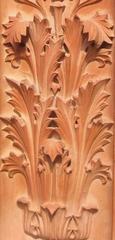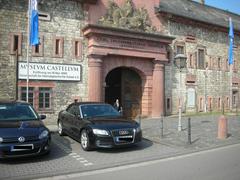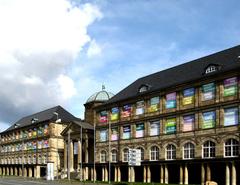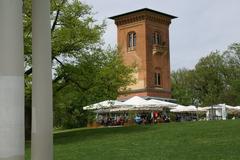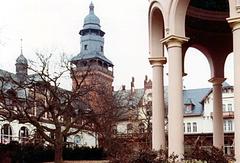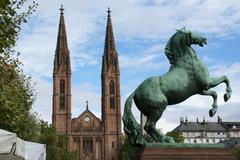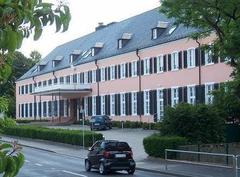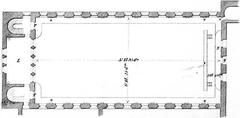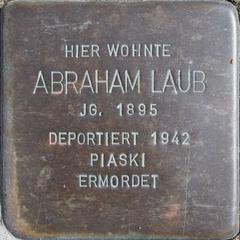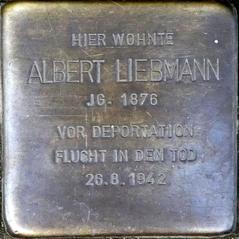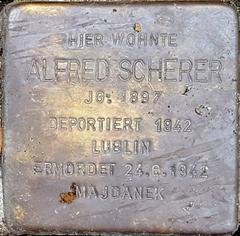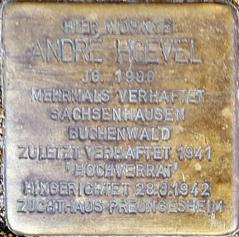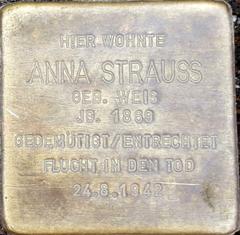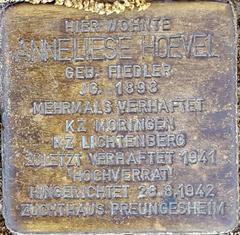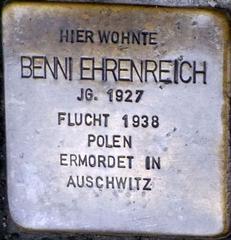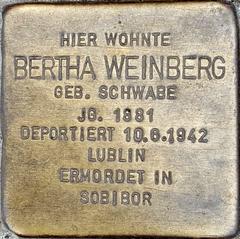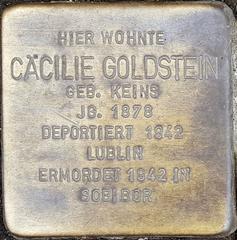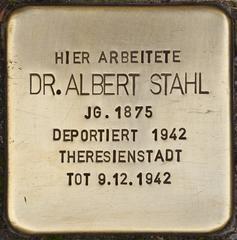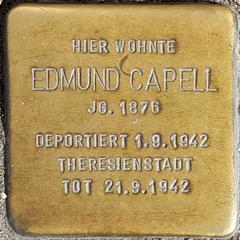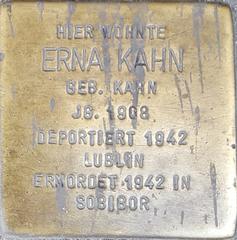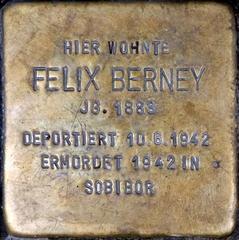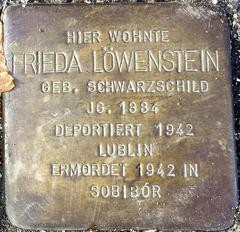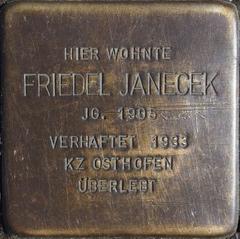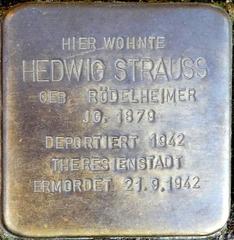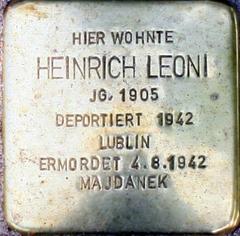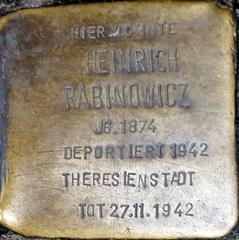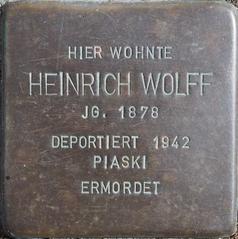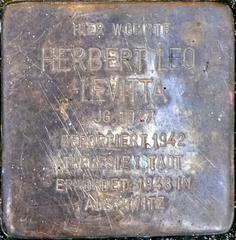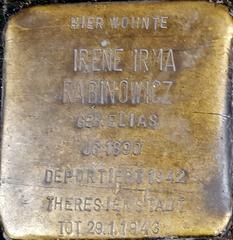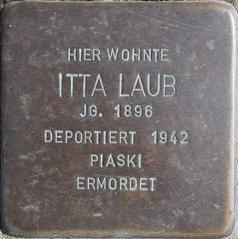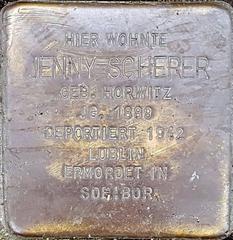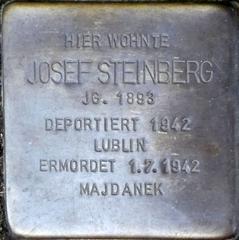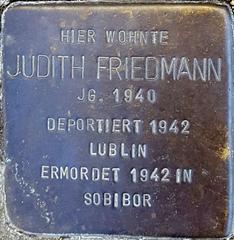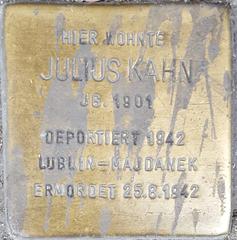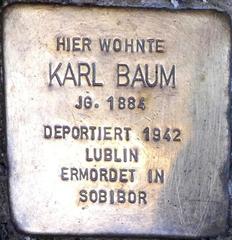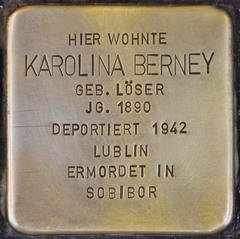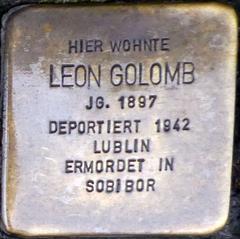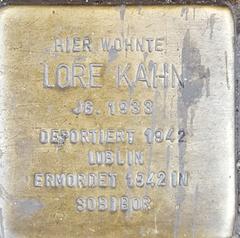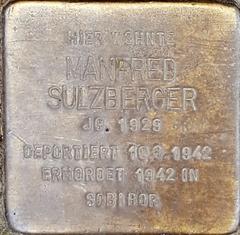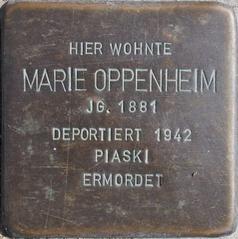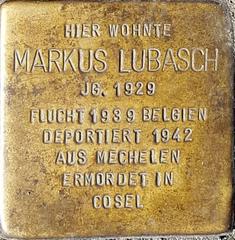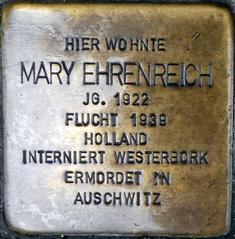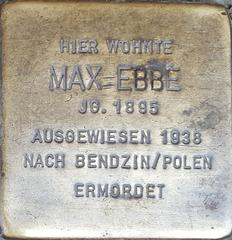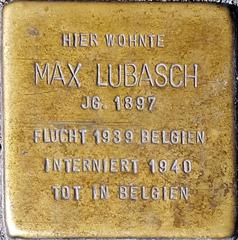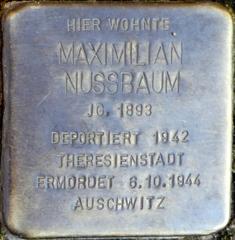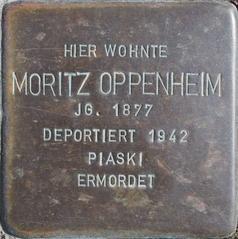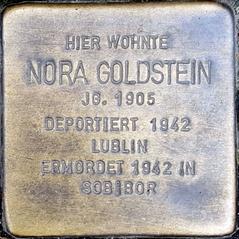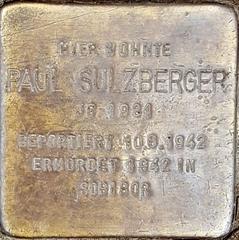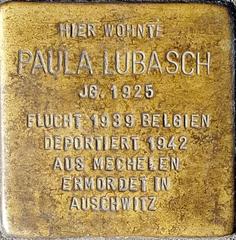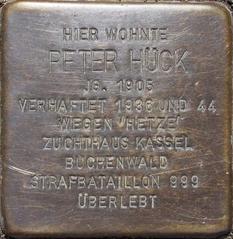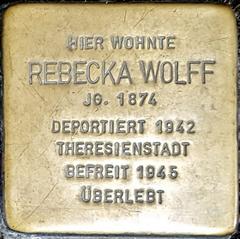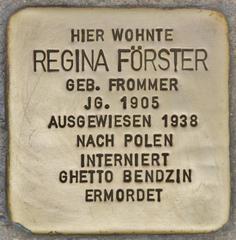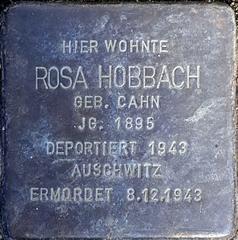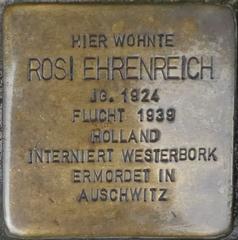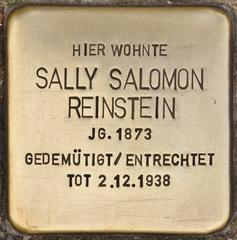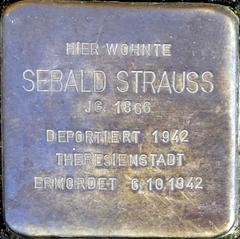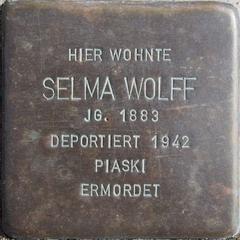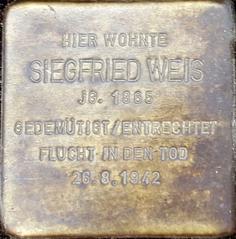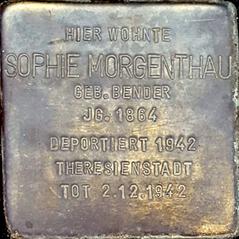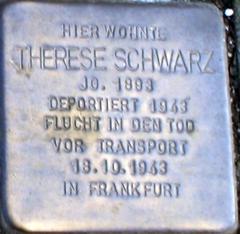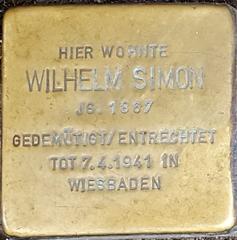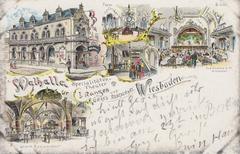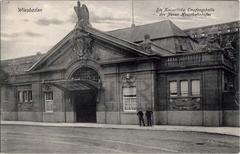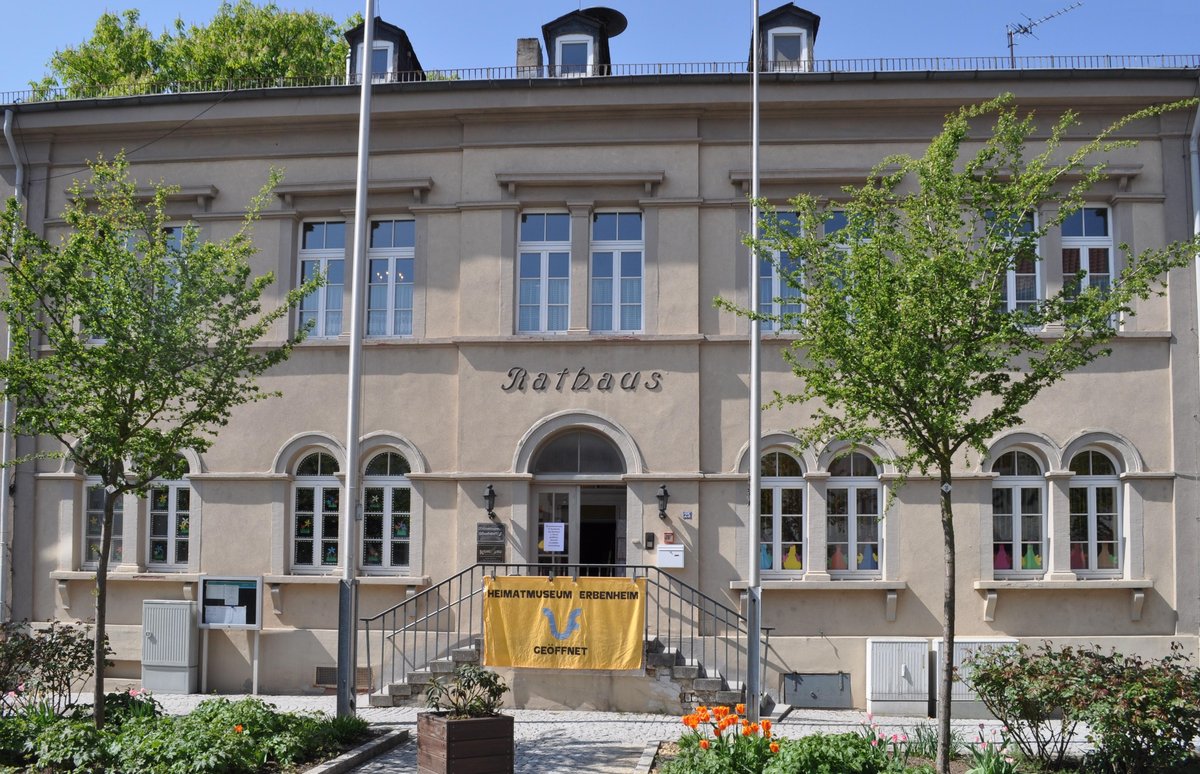
Erbenheim Local History Museum Wiesbaden: Visiting Hours, Tickets, and Travel Guide
Date: 14/06/2025
Introduction
Located in the historic district of Erbenheim in Wiesbaden, Germany, the Erbenheim Local History Museum (Heimatmuseum Erbenheim) offers a vivid journey through the district’s fascinating past. Housed in the former town hall, this community-driven museum preserves artifacts, documents, and personal stories that trace Erbenheim’s transformation from Neolithic settlements and Roman farms to a vibrant modern suburb. Operated primarily by volunteers, the museum is a testament to local engagement and inclusivity, inviting visitors to connect with the daily lives and evolving identity of Erbenheim’s residents.
This guide provides essential information on visiting hours, tickets, accessibility, transportation, and highlights of the museum’s collections and community initiatives. Whether you’re seeking a brief visit or an in-depth exploration, the Erbenheim Local History Museum is a must-see for anyone interested in Wiesbaden’s rich cultural tapestry. For the latest updates, see the Erbenheim Local History Museum Official Site and the Wiesbaden Tourism Board.
Quick Visitor Information
- Address: Bürgermeister-Kohl-Platz 1, 65205 Wiesbaden
- Visiting Hours:
- Tuesday to Friday: 2:00 PM – 5:00 PM
- Saturday, Sunday, and public holidays: 11:00 AM – 5:00 PM
- Admission: Free (donations appreciated)
- [Guided Tours: Available upon request; advance booking recommended via the museum website](#guided-tours:-available-upon-request;-advance-booking-recommended-via-the-museum-website)
- Accessibility: Wheelchair accessible
- Transport: Bus lines 1, 11, and 24; parking available nearby
Exploring Erbenheim’s History
Early Settlements and Roman Era
Erbenheim’s history stretches back to around 5,000 BCE, with archaeological evidence from the Neolithic period and the Linear Pottery culture. The fertile Wäschbach valley drew Bronze Age and later Roman settlers; between the 2nd and 4th centuries CE, Roman villas and agricultural estates thrived here. Artifacts from these eras are on display at the museum, illuminating the district’s ancient roots.
Medieval and Modern Transformation
First documented in 927 CE, Erbenheim gained town rights in 1423 and is symbolized by the late 15th-century Erbenheimer Warte watchtower. The Saint Paul Lutheran Church, with its striking architecture and WWI memorial plaque, is another key landmark.
Traditionally a center for agriculture, wine-growing, and sheep farming, Erbenheim modernized rapidly with the arrival of the railway in the late 19th century and electric streetcars in the early 20th century. The historic racecourse (built 1907–1910) and a dairy cooperative (operational until 1995) marked further economic development.
In 1928, Erbenheim was incorporated into Wiesbaden, and its racecourse later became the Mainz-Wiesbaden airfield—now the Lucius D. Clay Kaserne, headquarters of U.S. Army Europe and Africa.
Inside the Erbenheim Local History Museum
Set in the former town hall, the museum’s exhibits span:
- Prehistory to Modern Times: Prehistoric tools, Roman and Frankish artifacts, medieval town charters, and 20th-century domestic reconstructions.
- Agricultural Heritage: Traditional tools and equipment illustrating the district’s rural origins.
- Domestic Life: A recreated 1920s living room, shoemaker’s workshop, and household artifacts.
- Community Projects: Thematic exhibitions on migration, wartime life, and local stories, often in partnership with schools and artists.
- Photographs and Maps: Historical documentation of the railway, racecourse, and urban development.
Interactive displays and educational programs make the museum engaging for families and history enthusiasts.
Practical Tips for Visitors
- Best Time to Visit: Spring through autumn, when outdoor sites and the museum’s surroundings are most enjoyable.
- Nearby Attractions: Visit the Kurhaus, Nerobergbahn funicular, spa facilities, and other Wiesbaden highlights.
- Events: Check the museum website and Wiesbaden Tourism Board for special exhibitions and local festivals.
- Language: Most exhibits are in German; guided tours or translation apps may be helpful for non-German speakers.
- Visit Duration: Plan 1–2 hours for a comprehensive visit.
Frequently Asked Questions (FAQs)
Q: Is there an entrance fee?
A: No, admission is free. Donations are welcome.
Q: Are guided tours available?
A: Yes, available by advance request.
Q: How do I reach Erbenheim from Wiesbaden city center?
A: Bus lines 1, 11, and 24 connect Erbenheim efficiently.
Q: Is the museum accessible for visitors with disabilities?
A: Yes, it is wheelchair accessible.
Q: Is parking available?
A: Yes, nearby parking is available.
Q: Can I take photographs inside?
A: Photography policies may vary; ask staff before photographing exhibits.
Community Engagement and Educational Outreach
The museum’s mission is to preserve local heritage while fostering inclusivity and public participation. Operated by the Heimatmuseum Erbenheim e.V. association, it relies on volunteers, donations, and partnerships with schools, artists, and community groups (Wiesbaden City Lexicon). Programs emphasize:
- Inclusivity: Exhibits reflect diverse community voices through oral histories, collaborative curation, and projects with underrepresented groups (Heritage Creative).
- Education: School programs, family workshops, and intergenerational learning foster curiosity and cultural awareness (Museum Wiesbaden - Official Site).
- Volunteerism: Community members help with cataloguing, guided tours, and events, sustaining the museum’s grassroots spirit.
- Digital Engagement: Online collections, virtual tours, and newsletters keep the wider public connected (Museum Wiesbaden - Digital Collection).
Comparing Erbenheim Local History Museum with Other Wiesbaden Museums
Museum Wiesbaden
- Scope: Major art and natural history collections across 7,000+ square meters (Museum Wiesbaden - Wikipedia).
- Accessibility: Fully accessible, with amenities like a café and gift shop.
- Experience: Ideal for a full-day visit; Erbenheim Museum is more intimate and community-focused.
Schloss Freudenberg
- Focus: Experiential museum centered on sensory perception and hands-on learning.
- Atmosphere: Lively and interactive, ideal for families.
Fasanerie Wiesbaden
- Content: Combines wildlife exhibits and nature education; mostly outdoor activities.
- Cost: Like Erbenheim, generally free or low-cost.
Women’s Museum (Frauenmuseum)
- Perspective: Dedicated to women’s history and social issues.
- Audience: Appeals to those interested in gender studies and contemporary themes.
Other Local Museums
Similar community museums—such as Heimatmuseum Kostheim and Museum Castellum—offer insights into their respective districts, though with varying hours and facilities (WhichMuseum’s 2025 Wiesbaden Rankings).
Plan Your Visit and Stay Connected
- Official Sources: For up-to-date hours, events, and accessibility, consult the Erbenheim Local History Museum Official Site and Wiesbaden Tourism Board.
- Apps: Download the Audiala app or MuWi mobile app for self-guided tours, audio guides, and interactive maps (Museum Wiesbaden - MuWi App).
- Social Media: Follow museum channels for announcements, special events, and behind-the-scenes content.
Image Suggestions
Include high-quality images with descriptive alt text, such as:
- “Erbenheimer Warte watchtower overlooking the valley”
- “Saint Paul Lutheran Church with stained glass windows”
- “Historically furnished living room exhibit”
- “Museum exterior and entrance”
Summary
The Erbenheim Local History Museum is a vibrant center for cultural preservation and community engagement in Wiesbaden. Through its thoughtfully curated exhibits and programs, it offers a unique perspective on the district’s evolution, from ancient times to the present. Whether you’re a local resident or a traveler, the museum’s welcoming atmosphere, educational outreach, and connection to wider Wiesbaden heritage make it an essential stop on your cultural itinerary.
For additional information, current exhibitions, and travel tips, refer to the following resources:
- Erbenheim Local History Museum Official Site
- Museum Wiesbaden
- Wiesbaden Tourism Board
- Heritage Creative
- WhichMuseum’s Wiesbaden Rankings
- Wiesbaden City Lexicon
